Academic Contributors
The organizers of the 7ECM express their gratitude to all academic contributors for their support!
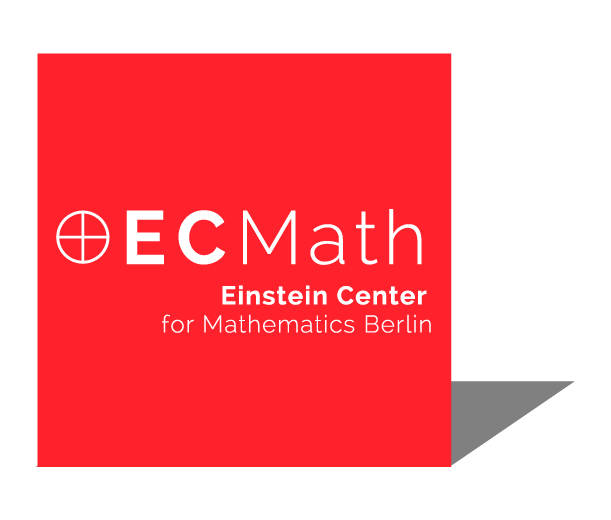
Einstein Center ECMath
The ECMath - Einstein Center for Mathematics Berlin establishes a network of excellence initiatives and projects, which include the Research Center Matheon, the Berlin Mathematical School (BMS), the German Center for Teacher Education in Mathematics (DZLM), the Research Campus Modal, and several Collaborative Research Centers (CRCs) or Transregional Research Centers (TRs).
ECMath supports application-oriented basic research in Matheon, selected students in BMS, school activities in DZLM, and knowledge transfer from science to industry, thus connecting education, cutting-edge research in pure and applied mathematics and large-scale industrial applications.
www.ecmath.de
ECMath supports application-oriented basic research in Matheon, selected students in BMS, school activities in DZLM, and knowledge transfer from science to industry, thus connecting education, cutting-edge research in pure and applied mathematics and large-scale industrial applications.
www.ecmath.de

Research Center Matheon
Matheon was founded on June 1, 2002 as one of six DFG Research Centers of the Deutsche Forschungsgemeinschaft.
Since June 1, 2014 the Matheon Research Center is funded by the Einstein-Stiftung within the scope of the Einstein Zentrum für Mathematik Berlin (ECMath).
Matheon is an international visible center of excellence. Led by international recognized experts, more than 200 Scientists run application-oriented fundamental research in close cooperation with partners from industry, economy and science. School and the community are another focus of our activities.
Matheon's mission is still coined by the phrasing used in the application in 2001:
„Key technologies become more complex, innovation cycles get shorter. Flexible mathematical models open new possibilities to master complexity, to react quickly, and to explore new smart options. Such models can only be obtained via abstraction. Innovation needs flexibility, flexibility needs abstraction, the language of abstraction is mathematics. But mathematics is not only a language, it adds value: theoretical insight, efficient algorithms, optimal solutions.“
www.matheon.de
Since June 1, 2014 the Matheon Research Center is funded by the Einstein-Stiftung within the scope of the Einstein Zentrum für Mathematik Berlin (ECMath).
Matheon is an international visible center of excellence. Led by international recognized experts, more than 200 Scientists run application-oriented fundamental research in close cooperation with partners from industry, economy and science. School and the community are another focus of our activities.
Matheon's mission is still coined by the phrasing used in the application in 2001:
„Key technologies become more complex, innovation cycles get shorter. Flexible mathematical models open new possibilities to master complexity, to react quickly, and to explore new smart options. Such models can only be obtained via abstraction. Innovation needs flexibility, flexibility needs abstraction, the language of abstraction is mathematics. But mathematics is not only a language, it adds value: theoretical insight, efficient algorithms, optimal solutions.“
www.matheon.de
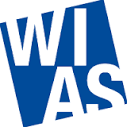
Weierstraß-Institut für Angewandte Analysis und Stochastik (WIAS)
The institute was established in 1992 per reccommendation of the German Council of Science.
As a member of Leibniz Association, the Weierstrass Institute for Applied Analysis and Stochastics, Leibniz Institute in Forschungsverbund Berlin e.V., engages in project-oriented research in applied mathematics, particularly in applied analysis and applied stochastics, aiming at contributing to the solution of complex economic, scientific, and technological problems. WIAS approaches this aim integrally, pursuing the entire problem-solving process from the interdisciplinary modeling to the theoretical mathematical analysis of the model to concrete numerical simulations.
www.wias-berlin.de
As a member of Leibniz Association, the Weierstrass Institute for Applied Analysis and Stochastics, Leibniz Institute in Forschungsverbund Berlin e.V., engages in project-oriented research in applied mathematics, particularly in applied analysis and applied stochastics, aiming at contributing to the solution of complex economic, scientific, and technological problems. WIAS approaches this aim integrally, pursuing the entire problem-solving process from the interdisciplinary modeling to the theoretical mathematical analysis of the model to concrete numerical simulations.
www.wias-berlin.de

European Mathematical Society (EMS)
The European Mathematical Society (EMS) was founded in 1990 in Madralin near Warsaw, Poland.
The EMS is a learned society representing mathematicians throughout Europe. It promotes the development of all aspects of mathematics in Europe, in particular mathematical research, relations of mathematics to society, relations to European institutions, and mathematical education. The EMS has its members around 60 national mathematical societies in Europe, 20 mathematical research centres, and 3000 individuals.
www.euro-math-soc.eu
The EMS is a learned society representing mathematicians throughout Europe. It promotes the development of all aspects of mathematics in Europe, in particular mathematical research, relations of mathematics to society, relations to European institutions, and mathematical education. The EMS has its members around 60 national mathematical societies in Europe, 20 mathematical research centres, and 3000 individuals.
www.euro-math-soc.eu

Technische Universität Berlin (TUB)
The eventful history of the Technische Universität Berlin extends all the way back to the time of King Friedrich II. Originally founded in 1770,
the School of Mining was integrated into the “Königlich Technische Hochschule zu Berlin” (TH) in 1916. The TH was established in 1879, when it merged with the School of Architecture,
founded in 1799, and the Academy of Trade, founded in 1821. Karl Friedrich Schinkel and Christian W. Beuth, the “father of engineering”, are some of the most well-known
representatives of these two institutions.
The TU Berlin sees itself in the tradition of the TH, a university that earned a fine reputation by conducting technical research in Berlin and thereby contributing to the city’s emergence as one of Europe’s largest industrial metropolitan areas.
A number of Nobel Prize winning scientists studied and taught at the TH Berlin well into the 1930s. The university’s reopening in 1946 was purposely conceived as a new beginning, so as to make a clear break with the National Socialist past. This fresh start was also to be expressed in its new name: as Germany’s first technical university it was named simply “Technische Universität”. Its educational mission was reallocated as well with an emphasis on “universal education”. By including the Humanities in its compendium of subjects, the TU Berlin became the first technical university in Germany to present a humanistic element in its scholastic profile. The aim was to breach the gap between technological research and social responsibility. The challenge of gaining insight into interaction between society and technology remains an important issue even today.
www.tu-berlin.de
The TU Berlin sees itself in the tradition of the TH, a university that earned a fine reputation by conducting technical research in Berlin and thereby contributing to the city’s emergence as one of Europe’s largest industrial metropolitan areas.
A number of Nobel Prize winning scientists studied and taught at the TH Berlin well into the 1930s. The university’s reopening in 1946 was purposely conceived as a new beginning, so as to make a clear break with the National Socialist past. This fresh start was also to be expressed in its new name: as Germany’s first technical university it was named simply “Technische Universität”. Its educational mission was reallocated as well with an emphasis on “universal education”. By including the Humanities in its compendium of subjects, the TU Berlin became the first technical university in Germany to present a humanistic element in its scholastic profile. The aim was to breach the gap between technological research and social responsibility. The challenge of gaining insight into interaction between society and technology remains an important issue even today.
www.tu-berlin.de

Berlin Mathematical School (BMS)
The Berlin Mathematical School (BMS) was founded in the summer of 2006 and obtains funding as a Graduate School in the framework of the
German "Initiative for Excellence". The BMS is the joint graduate school of the mathematics departments at the three major Berlin universities.
It established a new course program, coordinated across the three universities and taught in English. It give access to all math research groups
in Berlin and offers an intensive mentoring during the whole duration of studies. Besides striving for excellence, BMS is actively pursuing the goals of
internationality, gender equality and diversity.
www.math-berlin.de
www.math-berlin.de

Deutsche Mathematiker Vereinigung (DMV)
Deutsche Mathematiker-Vereinigung – in short: DMV – is Germany’s largest Mathematical Society. It has 5.000 members mostly at university, but also at school,
at banks and insurance companies. DMV is a harbour for all who adore mathematics and is the stakeholder of mathematicians in Germany.
dmv.mathematik.de
dmv.mathematik.de
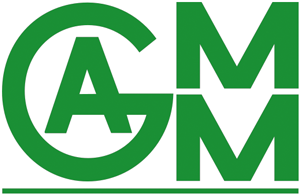
Gesellschaft für Angewandte Mathematik und Mechanik (GAMM)
The GAMM is the International Association of Applied Mathematics and Mechanics and was founded in 1922 by Ludwig Prandtl and Richard von Mises.
The society promotes scientific development in all areas of applied mathematics and mechanics. As legacy of the founding father
the society cultivates international cooperation in applied mathematics as well as in all areas of mechanics and physics relating to the foundations
of the enginiering sciences. Historically, the society has played an essential role in the advancement of hydro- and aerodynamics, solid state mechanics
as well as numerical and instrumental mathematics. GAMM is a society with a distinctly international organisation, currently more then 2000 members comprising.
www.gamm-ev.de
www.gamm-ev.de
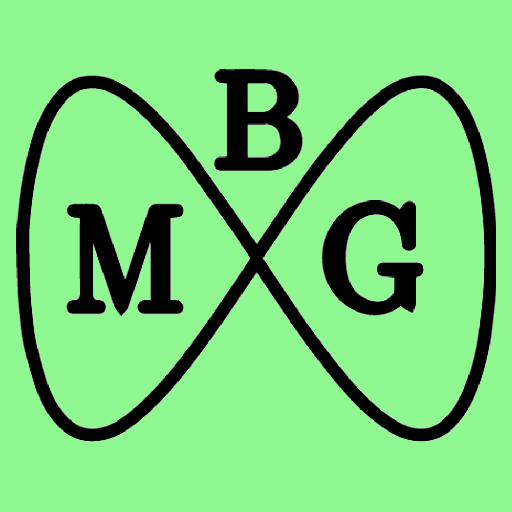
Berliner Mathematische Gesellschaft e.V (BMG)
The Berlin Mathematical Society (Berliner Mathematische Gesellschaft e.V.) is a non-profit association for the promotion of
mathematics in and around Berlin. It was founded in 1901. The BMG is a platform that brings together mathematicians from universities
and the business world as well as teachers, students and the general public with an interest in mathematics. It offers generally understandable lectures, publications and events.
www.math.berlin
www.math.berlin
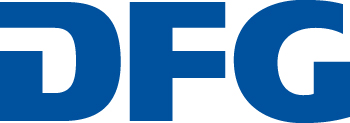
German Research Council (Deutsche Forschungsgemeinschaft)







